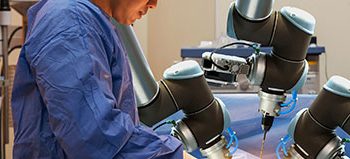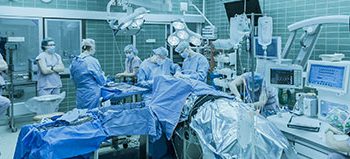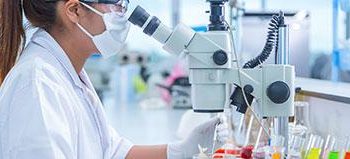The global in vitro toxicology testing market size is projected to reach USD 18.6 billion by 2027 from USD 11.2 billion in 2022, growing at a CAGR of 10.8%. The primary growth factors such as increasing R&D expenditure to detect toxicity at an early stage during drug development drive the market. Also, the increasing focus of the pharmaceutical and cosmetics industries on using in vitro methods are expected to offer significant opportunities for market growth in the coming years.
Thermo Fisher Scientific Inc. (US), Laboratory Corporation of America Holdings (US), Bio-Rad Laboratories, Inc. (US), General Electric Company (US), Eurofins Scientific (Luxembourg), Merck KGaA (Germany), Charles River Laboratories International, Inc. (US), Catalent, Inc. (US), Evotec (UK), SGS S.A. (Switzerland), QIAGEN (Germany), Promega Corporation (US), Gentronix Limited (UK), BioIVT (US), and MB Research Laboratories (US) are some key players in this market. These companies are focusing on increasing their presence in the high-growth markets through both organic as well as inorganic growth strategies such as product launches, acquisitions, and expansions.
Thermo Fisher Scientific was one of the leading players in the in vitro toxicology testing market in 2021. The company is a global manufacturer of laboratory equipments, analytical instruments, consumables, services and reagents for the in vitro toxicology testing market. The company operates from Life Science Business segment in In vitro toxicity testing market. The company has a significant global footprint owing to its strong sales and distribution network.
Merck is a leading science and technology company with a strong global presence in more than 120 countries. The company operates from life science segment in In vitro toxicology market. The company has a wide costumer base which supports company’s portfolio of life science products. The company majorly focuses on geographical expansions to increase its costomer base.
Research Applications
> Drug Discovery Development
In vitro toxicology testing is used in drug discovery and development to assess the safety of potential new drugs and to determine the dose levels that can be safely administered. This testing is conducted in a laboratory setting using cell culture, animal models, and computer models to evaluate the potential toxicity of a compound. In vitro tests can be used to evaluate the biological effects of a drug on cells, organs, and tissues, as well as to examine the potential for drug-drug interactions. These tests can also be used to identify biomarkers of toxicity and to predict the pharmacokinetics and pharmacodynamics of a drug. In vitro toxicology testing can help to reduce the number of animal studies needed to evaluate the safety of a drug, as well as to reduce the costs associated with drug development.
> Toxicity Profiling
In vitro toxicology testing in toxicity profiling can include tests such as Ames tests, mammalian cell culture tests, cytotoxicity testing, cell-based assays, and genotoxicity assays. These tests can be used to determine the potential toxicity of a new drug or chemical compound in order to assess its safety for human use or environmental exposure. Ames tests are used to detect mutagenic potential, mammalian cell culture tests measure cellular responses to potential toxins, cytotoxicity testing evaluates the toxicity of a compound based on the effects on cell viability, and cell-based assays measure changes in cell structure or function in response to a compound. Genotoxicity assays measure the potential for cytogenetic damage of a compound.
> Carcinogenicity
In vitro carcinogenicity testing is conducted in the laboratory using cell cultures to determine if a substance has the potential to cause cancer. This type of testing is used to identify potential carcinogens and evaluate their effects on cells and tissue. Tests typically involve exposing cells to a substance or its derivatives and measuring the changes in cell morphology, cell viability, and gene expression. Some tests may also assess the ability of a substance to induce genetic mutations or other types of chromosomal alterations. The results of these tests can help to identify potential carcinogens and inform the risk assessment process.
> Genotoxicit
Genotoxicity is the ability of a substance to damage genetic material, and can be caused by physical, chemical or biological agents. In vitro toxicology testing is used to evaluate the potential genotoxicity of a substance. In vitro genotoxicity tests typically involve exposing cultured cells to varying concentrations of a test substance and then analyzing the cells for signs of genetic damage. Tests used to assess genotoxicity include the Ames test, the micronucleus test, and the comet assay. The results of these tests can provide valuable information about the potential genotoxicity of a substance, which is important for assessing its safety for use in humans.
Geographically, the market is divided into North America, Europe, Asia-Pacific, South America, and the Middle East Africa. The APAC market is projected to register the highest growth during the forecast period. Factors such as, opposition to animal testing resulting in the use of alternate methods.
Related Links:
https://www.marketsandmarkets.com/ResearchInsight/in-vitro-toxicology-testing-market.asp
https://www.prnewswire.co.uk/news-releases/in-vitro-toxicology-testing-market-worth-18-6-billion-by-2027-exclusive-report-by-marketsandmarkets-tm–867340077.html
https://www.globenewswire.com/news-release/2022/11/11/2554094/0/en/In-Vitro-Toxicology-Testing-Market-to-Hit-18-6-billion-by-2027-Exclusive-Report-by-MarketsandMarkets.html


